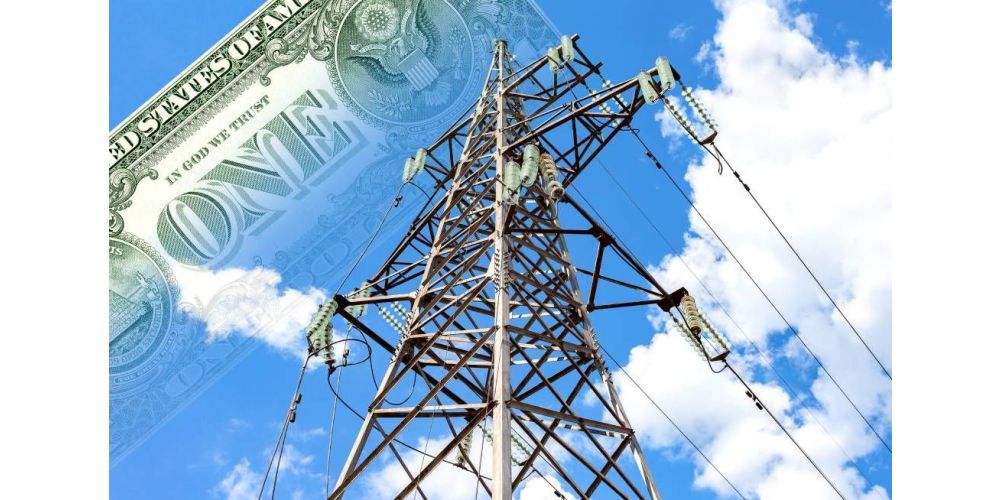TL;DR: Most electric distribution companies charge a monthly fee, but the amount varies based on factors like location, service type, and infrastructure costs. Even in deregulated markets, homeowners must pay this fee to their utility provider. Understanding your bill and comparing providers can help you manage costs effectively.
- What is a distribution charge? It covers the cost of delivering electricity to homes and maintaining infrastructure.
- Deregulated markets: Homeowners can choose their energy supplier but still pay distribution fees to their utility company.
- Do all electric companies charge this fee? Yes, though some have fixed rates while others base fees on usage.
- Factors affecting fees: Location regulations, consumer category (residential vs. commercial), and grid modernization costs.
- Finding your fee: Look under "Distribution" or "Delivery" on your bill.
- Lowering costs: Compare energy providers and understand all associated charges before choosing a plan.
How closely do you read your monthly electricity bill?
If you take the time to go through your bill line-by-line, you’ll probably notice a monthly distribution charge. When money’s tight, every single dollar and cent matters. You might wonder if you need to pay this extra monthly fee and where exactly the number on your bill came from.
Or, if you’re frustrated by unexplained charges, you might want to avoid it altogether. Do all electric distribution companies charge a monthly distribution fee? Is there a way to pinch pennies and avoid it?
Unfortunately, most electric companies do charge a monthly distribution fee. However, that fee can vary a lot depending on all kinds of factors. In this blog, we’ll break those factors down to demystify this mysterious fee.
Keep reading to learn exactly how your fee is calculated and where that money actually goes each month.


What is the Distribution Charge on an Electric Bill?
Before we dive into specifics, you should understand what the distribution charge on your electric bill is. Essentially, it covers the cost of physically moving the electricity from the nearest power plant to your home. Businesses and other properties pay a monthly distribution charge, too.
Don’t confuse the distribution charge with your supply charge. Your monthly supply charge is based on the amount of electricity you actually consume, typically in kilowatt-hours (kWh).
In contrast, the electric distribution charge goes toward maintaining the electric infrastructure in your community. You’re helping to pay for the maintenance and upkeep of the powerlines, transformers, and substations throughout your area. This ensures the electricity you need can reach your home efficiently and without disruption.
Do You Need to Pay an Electric Distribution Charge in Deregulated Markets?
Homeowners in deregulated markets have a lot of power when it comes to their monthly electricity bills. They get to choose their preferred electricity supplier (sometimes called an electricity provider). That gives them control over their monthly electric rate and plan.
However, regardless of a homeowner’s electricity supplier, their utility company does not change.
It’s the utility company, not the electricity supplier, that delivers the electricity each month. They’re also responsible for maintaining the electric infrastructure. That’s why you call your utility company, not your energy supplier when you have a downed powerline. And, as a result, it’s the utility company that receives the monthly distribution fee added to your electricity bill.
Thus, you do have to pay a monthly distribution fee, even in a deregulated energy market.
Do All Electric Distribution Companies Charge a Monthly Distribution Fee?
Pretty much all electric distribution companies charge a monthly fee. If you know of an exception, let us know!
For the most part, however, every utility company asks for some kind of monthly payment. Even so, the way those payments are structured might differ. In some markets, homeowners pay a flat distribution fee. In others, the fee is dynamic based on energy usage.
What Influences the Distribution Charge on an Electric Bill?
Three main factors influence how much you pay for power distribution each month. We’ll break them down below.
Location and State Regulations
In nearly all cases, your state will determine the policies surrounding how your monthly distribution charge is calculated. In regulated markets, state utility commissions set distribution fees. In deregulated markets, you pay a distribution fee set by your local utility.
Service Type and Consumer Category
Are you a residential customer, commercial customer, or industrial customer? The larger the consumer, the lower your per-unit distribution rate will be. In other words, small business owners probably pay a little more per month than large factory owners. That’s thanks to economies of scale.
With that said, many residential customers and homeowners pay a fixed monthly fee.
Infrastructure and Grid Costs
How old is the electric infrastructure in your community? Older infrastructure often requires more maintenance. In some cases, that can drive fees.
However, it also costs money to modernize older electric infrastructure. A high distribution fee may be an investment in newer, more modern technology.
The Energy Information Administration reports that grid modernization costs are a key driver behind rising distribution fees. However, we tend to believe that these critical upgrades are worth the cost.
How to Find Your Electric Distribution Charge
Your distribution fee will typically be on your bill under either “Distribution” or “Delivery.” You’ll either see a fixed monthly charge or a variable rate based on your actual energy usage. In the case of variable fees, the total will usually be calculated per kWH.
To learn more about how fees are structured in your state, check with your state’s Public Utility Commission.
Take Control Over Your Monthly Electricity Bill
Are you shopping for an electricity provider in a deregulated market? Comparing distribution fees can help you make the best choice. At Energy Pricing, we help consumers find competitive energy rates while understanding all costs involved. And, yes, that includes monthly electric distribution charges!
Want to explore your options? Check out our Energy Marketplace to compare rates today!

